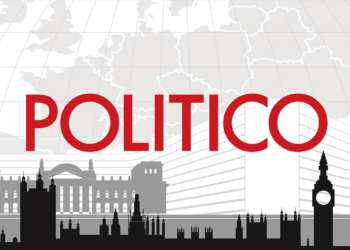
Travis Carr
New York City is in crisis. A pocket of the city’s tech community thinks it has the solution.
They’re looking to abundance, a fast-rising ideology that says the way out of urban decay is to build: more housing, more transit, more clean energy, and more tech. It’s a Yes-In-My-Backyard worldview aimed squarely at a city drowning in sky-high living costs and rising waters.
The city is screaming with an unfocused angst, said Andrew Staniforth, the cofounder and CEO of construction tech startup Assembly OSM, during a “Tech for Abundance” panel Wednesday night in Midtown Manhattan.
“I think that’s creating a bit of a weird identity crisis for New York, and especially for tech — is this the right place to be building?” Staniforth said.
The abundance movement is carving out its own political identity for people who no longer feel represented by Democratic or Republican policies. New York is a de facto one-party city, Slow Ventures principal Yoni Rechtman told Business Insider. Abundance, on the other hand, is a philosophy that tech workers across political lines can get behind.
Some 100 people across New York’s tech scene, founders, Big Tech workers, and venture capital investors, joined Wednesday’s Tech for Abundance event, hosted by Lux Capital and Company Ventures alongside the nonprofit Abundance New York. Lux Capital research partner Laurence Pevsner said the firm and its co-sponsors had envisioned maybe a few dozen people would want to attend. Instead, over 700 people requested admittance.
Abundance advocates are pushing for policies like congestion pricing for New York City traffic, rolled out in January, and changes to the city charter to make it easier to build more housing, a vote that could appear on New Yorkers’ ballots this November. Its proponents also have loftier hopes, like ridding Manhattan’s streets of their unsightly scaffolding, an effort without an end in sight but plenty of passion behind it, if the hearty applause from the Tech for Abundance audience is any indication.
“Clearly, so many people in tech feel politically homeless, and so many New Yorkers believe their city can be better. But going from that vision to action is hard,” Pevsner told the audience. The emerging movement is “giving political power and a voice to all of us who want to build a city of abundance in the place we love and call home.”
Shaina Horowitz, the director of program innovation and acceleration at The New York Climate Exchange and a Tech for Abundance panelist, said New York benefits by evading a San-Francisco-style tech bubble, which helps its entrepreneurs bring more diverse ideas to the table. But it also means New York needs to mobilize its tech community to continue to compete with the Bay Area — and to secure the city’s future.
“This city can’t afford not to move with urgency, whether we’re talking about the talented people moving out of the city or the infrastructure crumbling before our eyes,” she said.

Travis Carr
The politics of plenty
Abundance liberalism, as the philosophy is often called, has been steadily gaining traction over the past five years. Vaughan, who cofounded Abundance New York last year, said she saw a huge uptick in interest in March when Ezra Klein and Derek Thompson released their book Abundance, which describes the movement as a “call to renew the politics of plenty.”
“It feels like an antidote to some of the partisan insanity at the federal level, to be more positive and solutions-oriented around a finite and important set of issues,” Rechtman said.
The Tech for Abundance panelists discussed their respective approaches to some of New York City’s most critical constraints, including a lack of affordable housing, government bureaucracy, and an inadequate climate change response. Assembly OSM uses tech for modular construction of high-rise buildings, though the company has run into multiple roadblocks with local government policies, Staniforth said. Lux Capital-backed Conductor AI, cofounded by panelist Zachary Long, is working to automate government approval processes to break down some of that bureaucracy. And The New York Climate Exchange, as Horowitz explained, is building a physical campus on Governors Island to power more climate research, education, and jobs.
Abundance agendas typically center on increasing housing supply, a different stance on the same concern that’s been a cornerstone of Zohran Mamdani‘s platform as New York City’s leading mayoral candidate. Mamdani has drawn national criticism, as well as support, for promising to freeze rents on some apartments in response to the city’s housing crisis.
Vaughan said that while rent freezes don’t fit with abundance ideology, when she and other Abundance New York members had dinner with Mamdani in February, she felt he was open-minded about considering other policy solutions to affordable housing, like easing the construction of new homes.
“We’re really pragmatic about building relationships with different candidates and elected officials. They could be super far leftist, but if they agree with us on key parts, we’ll work with them on it,” she said.
Abundance New York hasn’t tried to wrap its arms around every hot-button issue, however. When New York-based serial investor and founder Esther Dyson asked the panel about disparities in healthcare, childcare, and education, its participants didn’t take a side. When Long admitted he didn’t have a solution, Dyson replied, “Well, Tech for Abundance needs one.”
Vaughan told BI that the abundance movement has historically stayed away from planting flags in healthcare, education, and policing, in part because people can find clear policy stances on those issues in the Democratic and Republican parties. But she also worries that engaging with such controversial issues, at least at this stage in Abundance New York’s life, “would split this coalition we’re trying to build.”
That coalition is growing. About 4,000 people have signed up for Abundance New York’s newsletter, and roughly half of those people are considered “members” by engaging further, like by volunteering or donating, Vaughan told BI. Abundance New York joins multiple other organizations similarly pushing for the “more is more” mindset, including Abundant New York, a super PAC affiliated with the nonprofit Open New York, which advocates for increasing housing supply.
Rechtman sees the movement’s goals as critical for the survival of New York’s startup ecosystem.
“Cost of living and quality of life issues make it harder to build a company in New York,” he said. “If New York wants to continue to be an important startup market, we have to be able to attract people here and to retain them. You can’t do that if it’s not an affordable place to live.”
The post NYC tech workers feel ‘politically homeless.’ They think abundance ideology is the answer. appeared first on Business Insider.




